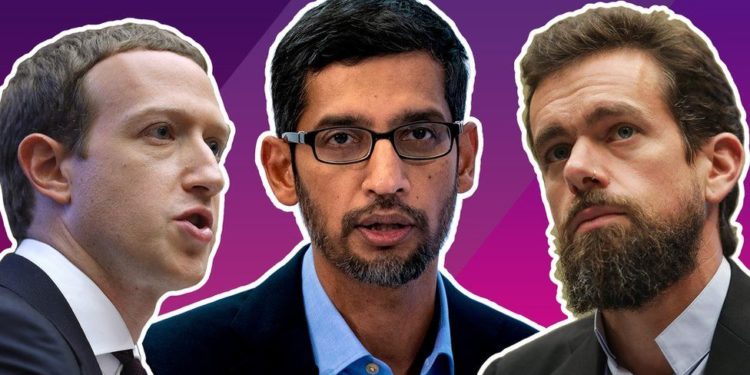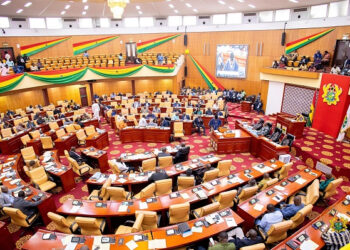Tech bosses Mark Zuckerberg, Sundar Pichai and Jack Dorsey are being grilled by US politicians over the proliferation of disinformation on YouTube, Twitter and Facebook.
This latest hearing is the first since the storming of the US Capitol.
Politicians believe that was a tipping point for greater regulation.
They have said they plan to change the legislation that protects online platforms from liability for content posted by third parties.
The session began in combative style with the chair Mike Doyle asking all three executives whether they felt they bore responsibility for the events in Washington. None were prepared to give a one word “yes” or “no” answer as he demanded.
He also challenged the platforms to remove 12 prolific anti-vaxxers from their platforms, which he said account for 65% of vaccine disinformation, demanding a deadline of 24 hours for them to get back to him.
More generally, Congress is considering scrapping Section 230, the legislation that was crafted in the early days of the internet so that website owners could moderate sites without worrying about legal liability, by effectively saying that they are not publishers.
Facebook boss Mr Zuckerberg proposed limited reforms,going further than his two peers.
“We believe Congress should consider making platforms’ intermediary liability protection for certain types of unlawful content conditional on companies’ ability to meet best practice to combat the spread of this content,” he wrote.
On disinformation more generally, he said hateful content made up only a small fraction of what Facebook users saw – with political posts accounting for 6% of what US users saw in their news feeds.
He also outlined the efforts his team had made to counter disinformation, including working with 80 fact-checking organisations and labelling debunked stories. Facebook had removed more than 12 million pieces of false content relating to Covid-19, he said.
Mr Pichai said YouTube had worked throughout 2020 to identify and remove content that was misleading voters, while information panels on the video-sharing website’s homepage about Covid-19 had been viewed more than 400 billion times.
He also mentioned Section 230, saying repealing it “would have unintended consequences – harming both free expression and the ability of platforms to take responsible action to protect users in the face of constantly evolving challenges”.
Read Also: I don’t take salary or per diem – Ken Ofori-Atta
Twitter’s Mr Dorsey said efforts to combat misinformation must be linked to “earning trust” from users by focusing on “enhancing transparency, ensuring procedural fairness, enabling algorithmic choice, and strengthening privacy”.
He did not reference the legislation but spoke about two recent experiments – Birdwatch and Bluesky – that Twitter is trialling to tackle misinformation.
Birdwatch has about 2,000 participants drawn from the Twitter community, with “birdwatchers” able to flag misleading tweets and annotate them with notes. Early studies of how it is working seem to show the notes range from balanced fact-checking to more partisan criticism.
Bluesky is an independent team funded by Twitter which is working on creating open and decentralised standards for social media.
SOURCE: BBCNEWS



























